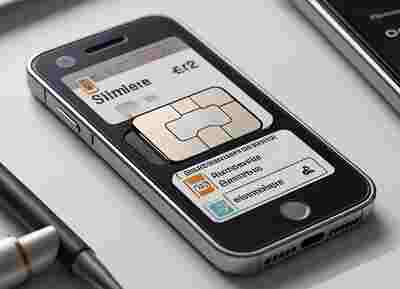
SIM database services allow users to check and manage their SIM card details, helping them avoid fraud and unauthorized usage. Whether you want to verify your number or track unauthorized activity, a SIM database provides essential tools for security and convenience.
What is a SIM Database?
A SIM database is a centralized system that stores information about registered SIM cards. It helps individuals and regulatory bodies monitor SIM usage, detect fraudulent activities, and ensure compliance with telecom regulations.
How SIM Database Works?
SIM databases collect and store subscriber details, including phone numbers, registration details, SIM owner details and network operator data. Users can access these details through online portals provided by telecom authorities or third-party verification services.
Why You Should Use a SIM Database?
· Verify Ownership: Ensure that your SIM card is registered under your name.
· Detect Fraud: Identify unauthorized numbers registered under your ID.
· Improve Security: Prevent identity theft and SIM-related scams.
Checking Your SIM Information Online
To check SIM details, follow these steps:
Visit the official SIM database website. Enter your phone number or national ID. Complete the verification process. View and manage your registered SIMs.
Is it safe to check my SIM details online?
Yes, it is safe to check your and any SIM owner details online if you use official platforms like government or telecom provider websites. A SIM database ensures secure access to registered SIM information. Avoid third-party sites to prevent data leaks and always follow security guidelines for protecting personal information.
Steps to Verify Your SIM Card Details
· Open the verification portal.
· Enter your SIM number and personal details.
· Receive an OTP for authentication.
· Confirm ownership and review SIM details.
How to Track Unauthorized SIM Usage
If you suspect someone has registered a SIM in your name without permission:
· Check SIM registrations using your ID.
· Contact your network provider for verification.
· Report unauthorized numbers to regulatory authorities.
Legal Aspects of SIM Databases
Most countries enforce SIM registration laws to combat fraud and criminal activities. Users must provide valid identification to register a SIM, and unauthorized use can lead to legal consequences. Government authorities regulate SIM databases to prevent identity theft, financial fraud, and other cybercrimes. These regulations ensure that every mobile number is linked to a verified identity, making it easier to track illegal activities. Non-compliance with these laws may result in penalties, service suspensions, or even legal action. In some countries, biometric verification, such as fingerprint or facial recognition, is also mandatory to further strengthen security measures.
Security Measures for SIM Users
· Always register SIMs with official documents.
· Avoid sharing personal information online.
· Regularly check your SIM database for unauthorized registrations.
Benefits of Monitoring Your SIM Card Data
· Prevents SIM cloning and fraud.
· Enhances security against identity theft.
· Helps in recovering lost or stolen SIMs quickly.
How to Report a Stolen or Misused SIM Card
If your SIM is lost or stolen:
· Contact your service provider immediately.
· Request a SIM block or suspension.
· File a report with telecom authorities if necessary.
Government Regulations on SIM Registration
Many countries have strict regulations requiring SIM registration. Users must submit valid identification documents, and telecom operators must verify the authenticity of the details. This process helps in preventing identity theft, unauthorized SIM usage, and fraudulent activities such as SIM swapping. In many regions, governments mandate biometric verification, such as fingerprint or facial recognition, to enhance security during registration. Failure to comply with SIM registration regulations can result in SIM deactivation or legal penalties.
Online Platforms for SIM Information Checks
Various official platforms allow users to check their SIM information, including:
· Telecom regulatory websites.
· Mobile network provider portals.
· Government security agencies.
Common Issues and Their Solutions
Unauthorized SIM registration is a common concern among mobile users. If you discover that a SIM card has been registered under your name without your consent, you should immediately report it to the telecom authority. They will investigate and take necessary actions to prevent unauthorized usage. Incorrect SIM details can cause disruptions in service or verification processes. If you notice any discrepancies in your registered SIM data, contact your network provider and request corrections. They may require valid identification for authentication before updating your details.
Losing a SIM card can lead to security risks, including unauthorized access to your personal data. If your SIM is lost, request a new SIM from your network provider and block the old one to prevent misuse. Most providers offer easy replacement services with identity verification. Receiving fraudulent calls is another issue many users face. If you receive suspicious or spam calls, report them to the appropriate authorities and block the number to avoid further disturbances. Telecom companies also provide tools to filter unwanted calls and messages.
Conclusion
A SIM database is a crucial tool for verifying and managing SIM card details. By regularly checking your SIM information, you can prevent fraud, ensure compliance with legal requirements, and maintain security. Always use official channels for verification and take immediate action if you detect unauthorized SIM activity.